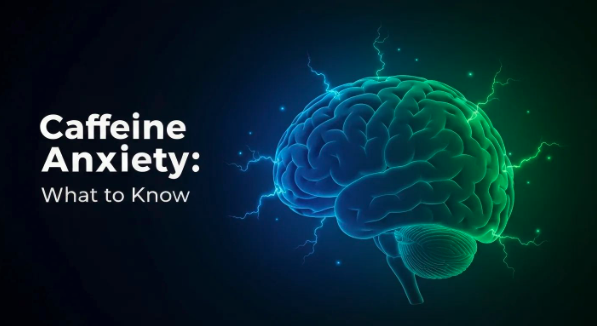Psychedelic-Assisted Therapys Impact on Depression Research
Explore psychedelic-assisted therapy for depression: current research and potential breakthroughs in healing.

Psychedelic-Assisted Therapy Overview
Current Research Landscape
Psychedelic-assisted therapy is gaining significant attention in the research community, particularly concerning its potential applications for mental health disorders like depression. Researchers from UNM Health Sciences are conducting studies to evaluate the use of psychedelic substances such as psilocybin, ketamine, and MDMA to treat conditions including depression, opioid use disorder, and PTSD [1]. The term "psychedelics" refers to substances that temporarily alter perception and mood, significantly impacting cognitive processes. Although these substances have been used for millennia, their medical use was more rigorously explored in clinical settings from the 1940s to 1960s [2].
Importantly, a systematic review found 15 randomized controlled trials and 23 observational studies that investigated the effects of psychedelic substances on mental health, demonstrating a growing interest and promising results in this field. Several substances examined include psilocybin and MDMA with or without psychotherapy.

Potential for Treating Depression
Research indicates that psychedelic-assisted therapy offers a unique approach to alleviating symptoms of depression. Psilocybin, for instance, has shown to be as effective at reducing depressive symptoms as conventional selective serotonin reuptake inhibitors (SSRIs) while exhibiting fewer side effects [3].
Recent studies point towards the potential benefits of psilocybin in aiding individuals with alcohol use disorder; findings from a study involving over 300 participants demonstrated positive outcomes in reducing alcohol consumption [4]. These developments suggest a need for further exploration into the capabilities of psychedelic substances, particularly as alternatives in treating mental health disorders.
The landscape of research supports the notion that psychedelic-assisted therapy could be a viable option for individuals struggling with depression, particularly those for whom conventional treatments have not been effective. Future studies may help clarify their full potential and lead to innovative therapeutic approaches targeting mental health conditions.
Studies on Psychedelic Drugs
Research on psychedelic drugs is expanding, revealing potential therapeutic applications, particularly in treating depression. This section discusses three significant substances: psilocybin, ketamine, and MDMA.
Psilocybin Research
Psilocybin, a compound found in magic mushrooms, has garnered considerable attention for its antidepressant-like effects. Recent studies indicate a promising pathway for its application in clinical settings. For instance, in one of the largest clinical trials on psilocybin-assisted psychotherapy for major depressive disorder, 71% of participants showed a clinically significant response to psilocybin just four weeks after a single dose. Additionally, 54% achieved remission from depression, achieving large effect sizes (d = 2.3) [5].
Current ongoing studies include the uAspire study, which assesses the potential benefits of psilocybin for major depressive disorder, allowing all participants to eventually receive psilocybin over the study’s duration of 54 weeks [1]. Evidence indicates that psilocybin assistance can lead to sustained remission and a reduction in symptom severity, although more extensive research is necessary to determine how long these effects last and how they differ across various populations [2].
Ketamine Studies
Ketamine, traditionally used as an anesthetic, has shown rapid antidepressant effects, particularly in patients with treatment-resistant depression. Initial studies demonstrate that a single infusion of ketamine leads to significant improvements in depressive symptoms within hours or days, which is markedly faster than conventional antidepressant treatments. Research indicates that the effects can last for up to several weeks post-administration.
Ongoing clinical trials aim to better understand the underlying mechanisms by which ketamine alleviates depression and to determine optimal dosing strategies. Findings suggest that ketamine's action on the neurotransmitter glutamate may play a crucial role in its antidepressant effects. These insights are vital as they aim to identify which patients might benefit most from ketamine infusions, particularly for those who have not responded to other treatments.
MDMA Trials
MDMA, commonly known for its use in recreational settings, is being studied for its potential to treat post-traumatic stress disorder (PTSD) and assist in psychotherapy for depression. Clinical trials indicate that when combined with talk therapy, MDMA can facilitate emotional breakthroughs and improve therapeutic outcomes. In recent studies, participants have reported a significant reduction in PTSD symptoms following MDMA-assisted therapy sessions.
The healing effects of MDMA are attributed to its capacity to enhance emotional engagement, reduce fear responses, and create a sense of safety during therapy, enabling individuals to confront painful memories associated with depression and trauma. As with psilocybin and ketamine, further research is imperative to solidify MDMA's long-term safety and effectiveness in treating mood disorders.
The studies on these psychedelic drugs highlight the growing interest in utilizing these substances within a therapeutic context. As research continues, these therapies may offer new hope for individuals struggling with depression, particularly for those who have found limited success with traditional treatments. For those interested in understanding the role of neurotransmitters in depression, more information can be found in our article on the role of neurotransmitters in depression.
Psychedelic Therapy Applications
Psychedelic-assisted therapy is gaining attention as a promising approach for various mental health conditions, including treatment-resistant depression, PTSD, and addictions. The ongoing research highlights its potential in addressing these issues effectively.
Treatment-Resistant Depression
Treatment-resistant depression affects a significant portion of those with depression, where conventional treatments fail to provide relief. Recent studies suggest that psychedelic substances like psilocybin can offer effective solutions. Research indicates that psilocybin has demonstrated effectiveness comparable to traditional selective serotonin reuptake inhibitors (SSRIs) but with fewer side effects. Clinical trials have shown a remarkable 71% clinically significant response rate in participants with major depressive disorder four weeks after a single psilocybin dose.
Study TypeResponse RatePsilocybin after 4 weeks71%
For this reason, researchers at UNM Health Sciences are examining psilocybin's use in treating major depressive disorder through ongoing studies.
PTSD Research
Post-Traumatic Stress Disorder (PTSD) is another area where psychedelic-assisted therapy shows promise. MDMA, in particular, has been investigated for its potential to treat PTSD. By facilitating emotional processing and reducing fear responses, MDMA may help patients confront trauma in a supportive therapeutic environment.
Research has demonstrated that MDMA-assisted psychotherapy has led to significant reductions in PTSD symptoms, with many participants experiencing improvements even months after treatment. These findings position MDMA as a potent alternative to conventional PTSD treatments.
Addictions and Substance Use
The application of psychedelic therapy extends beyond depression and PTSD to encompass addiction treatment. Psilocybin has shown effectiveness in reducing or abstaining from alcohol use. Studies indicate that participants often experience lasting behavioral changes, leading to improved outcomes in managing substance use disorders.
Through these various applications, psychedelic-assisted therapy is carving a niche in mental health, presenting new avenues for those who may have exhausted traditional treatment options. For a comprehensive understanding of depression's complexities, consider exploring topics such as the role of neurotransmitters in depression and the effectiveness of electroconvulsive therapy (ECT).
Clinical Trials and Results
The emerging field of psychedelic-assisted therapy for depression has garnered significant attention in recent years. Various studies have been conducted to explore the effectiveness of different psychedelic substances in treating mental health conditions. This section will focus on the clinical trials and results pertaining to psilocybin for major depressive disorder, MDMA for PTSD, and ketamine for addiction.
Psilocybin and Major Depressive Disorder
Psilocybin has demonstrated rapid and sustained antidepressant effects without leading to tolerance or dependence in clinical trials [5]. A notable study from Johns Hopkins Medicine in 2020 found that participants receiving psilocybin treatment alongside supportive psychotherapy experienced significant reductions in depressive symptoms, with half of the individuals achieving remission four weeks post-treatment.
OutcomeResultsReduction in depressive symptomsSignificantRate of remission50% at 4-week follow-up
Psilocybin-assisted therapy also shows promise in addressing substance use issues, especially alcohol use disorder. Research indicates positive outcomes for over 300 participants, suggesting that further investigation into psychedelic treatments for addiction is warranted.
MDMA for PTSD
MDMA-assisted psychotherapy (MDMA-AP) has shown high rates of success in treating Post-Traumatic Stress Disorder (PTSD). Recent studies have reported significant reductions in symptoms, with many participants achieving clinical response and remission at long-term follow-ups. This therapeutic model integrates psychological preparation, therapeutic MDMA sessions, and integration sessions, which collectively facilitate trauma processing in a supportive environment [6].
OutcomeResultsClinical response rateHighSymptoms reductionSignificant and sustained
MDMA-AP also benefits individuals with Alcohol Use Disorder (AUD) and anxiety related to life-threatening diagnoses, yielding encouraging results for reducing alcohol consumption and anxiety levels.
Ketamine for Addiction
Ketamine has been widely researched for its rapid antidepressant effects and potential in treating addiction. Although specific studies on ketamine for addiction were not highlighted in the context provided, it is important to note that ketamine therapy has shown promise in reducing symptoms of depression, which could significantly impact recovery outcomes for those struggling with substance abuse.
This growing body of research underscores the potential of psychedelic-assisted therapies in addressing various mental health conditions, including depression and addiction. The continued exploration of these treatments may lead to innovative approaches in mental health care. For more insights into related topics, consider visiting articles on male depression: breaking the silence and stigma and the role of neurotransmitters in depression.
Role of Therapists in Psychedelic Therapy
Therapist Training
The effectiveness of psychedelic-assisted therapy (PAT) heavily relies on the skills and training of the therapists involved. Recent studies emphasize that building rapport, encouraging openness, and utilizing unconscious processes in a non-directive relationship are crucial for the therapeutic outcomes of PAT. Therapists play a significant role in guiding the experience, which encompasses both the "set" (the individual's mindset) and "setting" (the environment in which the therapy occurs).
Proper training involves understanding the substances being used, the therapeutic process, and the potential therapeutic effects of psychedelics. Therapist training programs are increasingly incorporating elements that prepare them for handling the unique dynamics present during psychedelic sessions, including managing emotional responses and facilitating healing. This holistic approach allows therapists to tailor the treatment to the individual's needs, increasing the likelihood of positive outcomes.
Importance of Integration Sessions
Integration sessions hold significant importance in psychedelic-assisted therapy as they help bridge the insights gained during the psychedelic experience with everyday life. These follow-up sessions enable individuals to process feelings and thoughts that arose during treatment. The integration process ensures that the context of the experience is understood and meaningful, which can enhance the therapeutic effects.
Integration allows patients to discuss their experiences with their therapists, reinforcing the relationship and fostering a supportive environment. This dialogue can facilitate healing and coping strategies, especially in managing symptoms of depression and trauma. By focusing on the experiences and emotions post-therapy, patients can better incorporate these insights into their daily lives, enabling them to apply what they learned for lasting change.
Therapists trained in the integration process can guide individuals through this critical phase, maximally leveraging the benefits of psychedelic-assisted therapy. For more insights into related topics, readers might explore how male depression impacts treatment approaches or the role of neurotransmitters in depression.
Future of Psychedelic Therapy
The future of psychedelic-assisted therapy presents a landscape ripe with potential as research continues to unfold. Significant advances in scientific studies are opening doors to new treatment avenues for individuals struggling with various mental health conditions.
Research Advances
Recent clinical trials have generated promising results, indicating the potential for psychedelics to treat a wide array of mental health challenges, including bipolar depression, suicidal ideation, and depression associated with conditions such as early Alzheimer’s disease. A review of the research uncovered 15 randomized controlled trials and 23 observational studies that met eligibility criteria for inclusion, highlighting the growing interest and investment in this field [2].
The efficacy of psychedelic drugs in treating conditions that have historically proven difficult to manage, such as treatment-resistant depression, obsessive-compulsive disorder, and substance use disorders, showcases their promising role in the future of mental health treatment [3]. Research suggests that the experience from these substances, influenced by factors like setting and dosage, is crucial in determining the outcome of treatments, reinforcing the need for tailored therapeutic environments.
Condition AddressedPotential Psychedelic TreatmentBipolar DepressionPsilocybin, MDMASuicidal IdeationKetamineDepression & Early Alzheimer'sPsilocybinAnorexia NervosaLSDMood Disorders in Cancer PatientsPsilocybin
Challenges and Potential Solutions
Despite the promising advances, several challenges inhibit the widespread adoption of psychedelic therapies. Historical stigma surrounding these substances, regulatory hurdles, and the need for trained professionals to guide therapy sessions pose significant obstacles. Additionally, there is an ongoing discussion about the appropriate settings and dosages necessary to facilitate safe and effective therapeutic experiences.
One potential solution is advocacy for regulatory reform to allow for more extensive research and clinical use. Increasing awareness and education regarding the therapeutic benefits of psychedelics can help mitigate social stigma. Implementing structured training programs for therapists involved in psychedelic therapy can also ensure safety and efficacy in treatment practices.
The re-emergence of interest in psychedelics since the research slowdown in the 1970s presents opportunities for innovation in mental health treatment. Continued funding and support for clinical trials, along with public education campaigns, will be crucial in overcoming barriers and realizing the potential of psychedelic-assisted therapy for depression: current research and potential.
Investing in this research could ultimately lead to transformative changes in how mental health conditions are understood and treated, paving the way for new hope for those afflicted by these disorders.
References
[2]:
[3]:
[4]:
[5]:
[6]:
More Resources
A team ready to start your journey.
Get in touch — today.
We are a safe space – a haven for exceptional individuals to receive discreet, personalized, in-person treatment and care.
.avif)

.webp)








